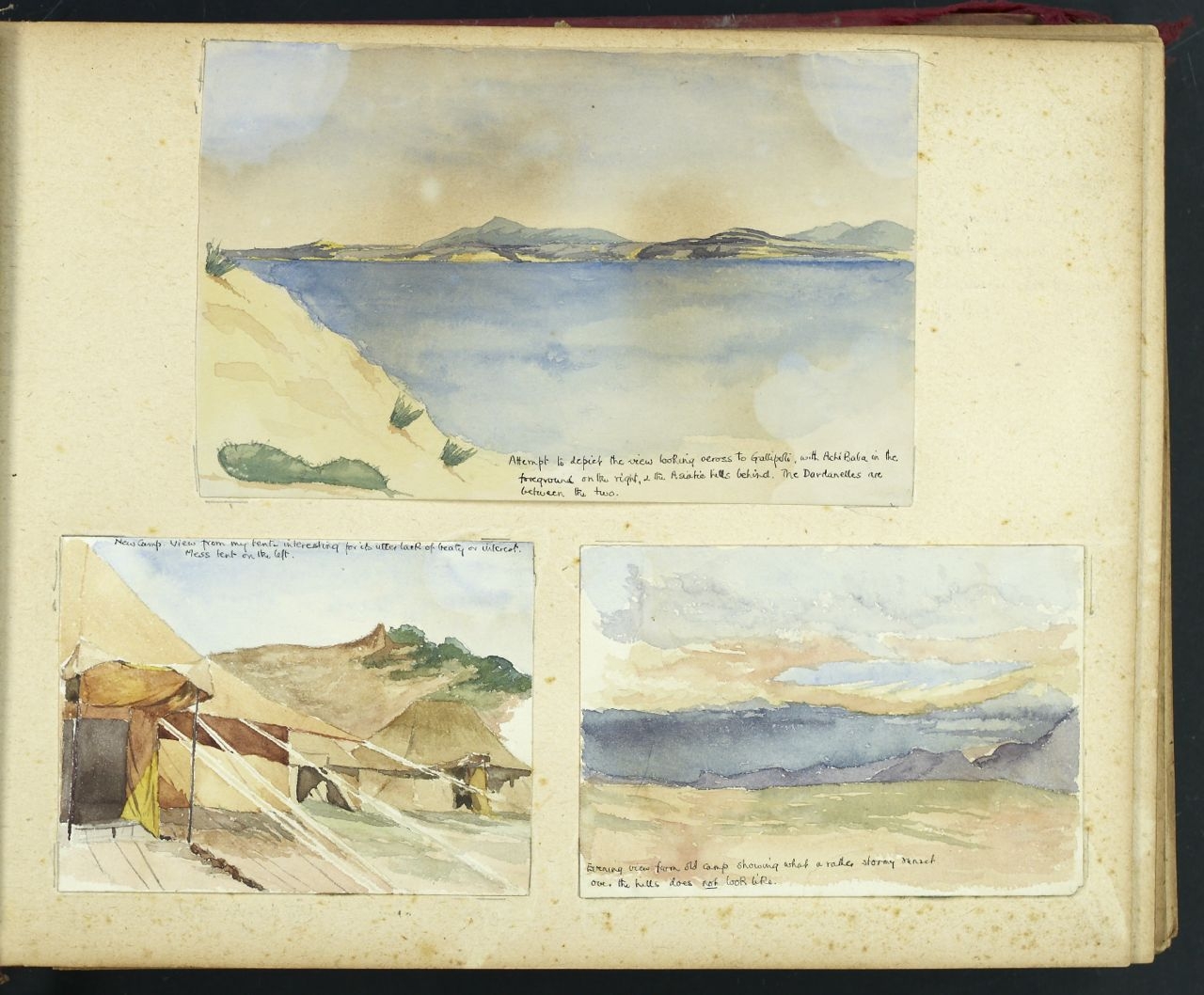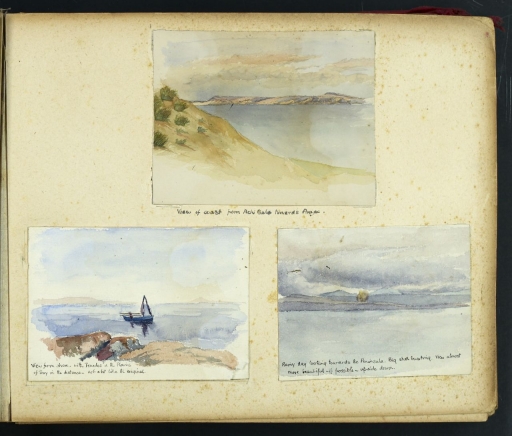A British officer’s painting of a shell exploding over Gallipoli is among the highlights of a scrapbook of water-colours, sketches and photos which has been released to mark the Dardanelles campaign centenary.
The artist, Lieutenant Colonel Arthur Chichester, noted: ‘Rainy Day looking toward the Peninsula. Big shell bursting. View almost more beautiful – if possible – upside down.’
His scrapbook has been unveiled by the Public Record Office of Northern Ireland (PRONI) as its ‘Document of the Month,’ ahead of major commemorations for the 100th anniversary of the Gallipoli landings in April 2015.
Stephen Scarth, Head of Public Services at PRONI, says: “It is all too easy to think of the Gallipoli battle as an abstract concept that took place long ago and far away. However Lt-Col. Chichester’s paintings bring the area to life.
“His paintings include the view of the coast from Achi Baba towards what has become known as Anzac Cove.
“Other images include views of the allied camp, a stormy sunset over the hills, and soldiers in Suvla Bay prior to evacuation in December 1915.”
Colonel Chichester survived the First World War, dying in 1972 at the age of 82.

Gallipoli conference – Belfast
A one-day conference, hosted by the Public Record Office of Northern Ireland on April 30th 2015, will examine the impact of Gallipoli and the role of Irish troops.
Ireland made a major contribution to the Dardanelles campaign, points out Stephen Scarth from PRONI.
Speakers will include Dr Tim Bowman of the University of Kent; Dr Myles Dungan (historian and broadcaster); Professor Keith Jeffrey (Queen’s University Belfast); John Lee (author and historian); and Tom Thorpe from King’s College London.
The event is jointly organised with the Antrim and Down Western Front Association branch. Further details are available here.
The Public Record Office of Northern Ireland is based in Belfast. Lieutenant Colonel Arthur Chichester’s scrapbook has the reference D3027/6/16.
Source: Northern Ireland Executive (Department of Culture, Arts & Leisure)
Images courtesy of Public Record Office of Northern Ireland
Posted by: Peter Alhadeff, Centenary News
